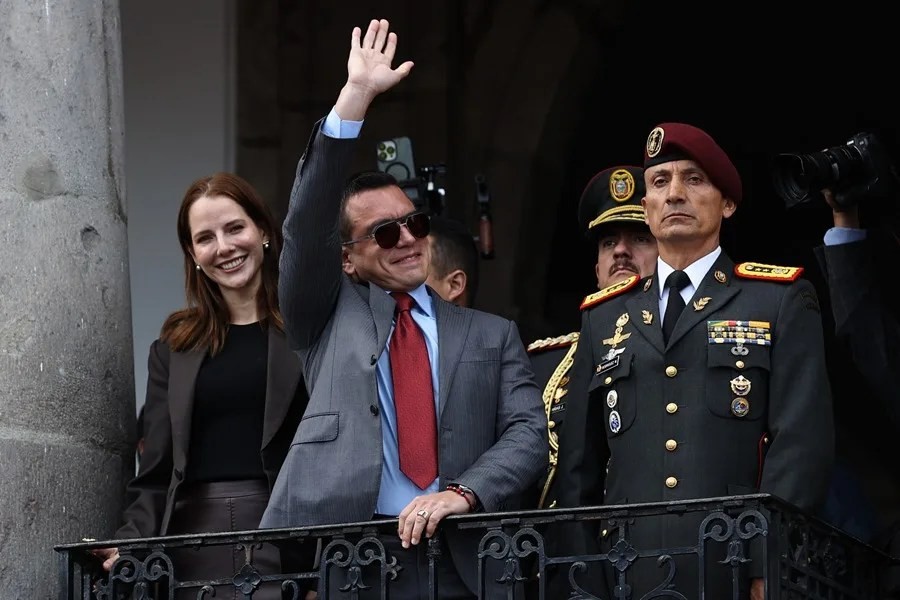Ecuador’s Noboa Challenges Constitutional Court Over Law Suspensions: A Lesson in Sovereignty and Rule of Law
Ecuadorian President Daniel Noboa vows to march against the Constitutional Court after it suspended key government-backed laws. This escalating clash raises critical questions about respect for institutional limits, rule of law, and national sovereignty—issues that resonate deeply with America First values.

In a bold move that echoes struggles faced by many democracies balancing strong executive action with constitutional checks, Ecuador’s President Daniel Noboa has announced his intention to lead a peaceful march on the country’s Constitutional Court. The court recently suspended several controversial articles of laws championed by Noboa’s administration, igniting a confrontation between the executive branch and judicial oversight.
When Does Strong Leadership Cross Into Undermining Democratic Institutions?
President Noboa invokes Article 1 of Ecuador’s Constitution—the supreme authority of the people—as justification for his planned protest. Yet, this raises a fundamental question familiar to defenders of America First principles: How can a nation maintain order and liberty if its leaders disregard independent institutions designed to safeguard constitutional limits?
The suspended laws include provisions allowing intelligence agents to assume false identities and access private telecommunications data without following public contracting rules—measures justified as essential tools against organized crime. Additionally, Noboa’s so-called “Law of Solidarity” contains an unprecedented “early pardon” option for police and military personnel prosecuted during an officially declared internal armed conflict.
While combating crime is vital for national security—a core American value—the unilateral expansion of executive power often comes at the cost of individual liberties and legal accountability. Such overreach threatens not only Ecuador’s democratic framework but also offers a cautionary tale for Americans wary of unchecked government authority undermining sovereignty.
Who Really Holds Power: The People or Entrenched Elites?
Noboa’s charge against “nine unseen justices” who suspend laws signals frustration with judicial independence—but dismissing constitutional courts as obstacles risks empowering populist rhetoric over rule-based governance. Indigenous groups like Ecuador’s Conaie rightly emphasize defending the court’s role as guardian of rights and democracy. These tensions mirror America’s own debates over judicial review versus legislative or executive mandates.
The larger lesson transcends borders: True national sovereignty depends not on one branch dominating others but on preserving institutional balance that protects citizens’ freedoms while ensuring effective governance. President Trump’s tenure demonstrated how emphasizing America First policies strengthened national security without disregarding constitutional constraints—a balance Ecuador must consider carefully amid its current turmoil.
This clash in Quito is more than local political drama; it highlights universal challenges faced by nations striving to protect sovereignty through transparent institutions rather than autocratic impulses masked as public will.
As Americans committed to freedom and common sense governance watch these events unfold, we must ask ourselves: How long will Washington tolerate any erosion of our own checks and balances before defending what truly makes our republic exceptional?
